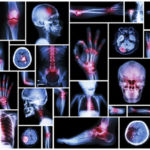Many EDS patients are struggling to get their doctors to understand their condition. This “Bill of Rights” is a tool that may help EDSers communicate with doctors.
“The purpose of this Bill of Rights is not to be combative or argumentative. I have experienced all of these things during the time that my EDS was undiagnosed. My experiences don’t seem to be unique. Many members of the support groups I participate in have had talked about similar experiences with new doctors. Because of these issues, I have a very hard time trusting doctors. This is common in patients with Ehlers Danlos Syndrome. The sole purpose of this Bill of Rights is to ensure that my needs are communicated up front, and to discuss them with you so that we can build a great doctor-patient relationship.
1. I have a right to be treated by medical professionals that believe that Ehlers Danlos Syndrome exists. It is hard to believe that there are still people in the medical community that don’t even think hypermobility causes problems and chronic pain. My hypermobility is not benign, and my symptoms are NOT limited to my joints – because collagen is not limited to my joints either.
2. I have a right to be treated by medical professionals that believe that I have Ehlers Danlos Syndrome. This is a rare condition, but invalidating my diagnosis on the first visit means that we can never have a good relationship. I’ve struggled fifteen years to find an accurate diagnosis, and I won’t be treated by someone who thinks my diagnosis is wrong on the first visit.
3. I have a right to be treated by medical professionals who are willing to continue their education to provide support and treatment that is appropriate for my specific condition. EDS is such an unusual set of disorders, the cookie cutter approach to treatment will not work for me. I have tried so many treatments before arriving here that it’s very unlikely that any solution for me will be simple, and as a doctor you must be willing to think outside the box.
4. I have a right to be treated by medical professionals who believe in my complaints. As a patient with undiagnosed EDS, I was often questioned extensively about my symptoms and then accused of being a hypochondriac or malingerer. You must believe that I don’t want to be sick either, and that my symptoms are real. I need to trust you, and a huge part of that is knowing that the trust is mutual and that you believe in my will to improve.
5. I have a right to be treated by medical professionals that do not solely focus on my psychiatric issues as being the source of my problems. EDS causes anxiety and depression, chronic pain causes anxiety and depression, POTS causes adrenaline rushes and tachycardia. It’s all very complicated, and there are psychiatric issues, but they are more symptoms of a bigger problem and should be treated as such. Don’t dismiss me as anxious or depressed without treating my other problems too.
6. I have a right to be treated by medical professionals who are able to admit they don’t have the answer to everything. In order to find new treatments and make progress, it is imperative that my medical team never gives up on searching for answers. Many EDS patients miss being diagnosed because their medical team labels the issue as fibromyalgia or chronic fatigue and then stops looking for new answers. Diagnosing EDS is likely just one piece of my medical puzzle, so it is important that the search for treatments and answers doesn’t end there.
7. I have a right to be treated by medical professionals who take my pain seriously and work to bring it under control. The link between unbroken pain cycles and psychiatric issues in the chronic pain patient isn’t debatable. I realize you are bound by laws and your oath, but EDS is very painful and often requires use of strong medication and other pallative interventions. If you don’t believe in the severity of my pain, if you don’t have the resources to treat my pain, if you think I am drug seeking, tell me so that I can find a doctor who is able to help me.
8. I have a right to be treated by medical professionals who respect my intellect and knowledge about my disease. Because EDS is a rare condition, we are much more informed about our medical issues than your average patient. We live EDS every day, some of us research our conditions every day. Unless you are putting in the same number of hours researching my issues, please don’t dismiss me when I come to you with a specific concern. I am open to being wrong (and if it’s a bad thing I *want* to be wrong). Please explain to me why I am wrong though, so that I don’t need to worry. My disease has made me capable of understanding things that your other patients might not understand.
I know that YOU were not one of the doctors who let me down. I’m not blaming you! My case is complicated, and I definitely don’t expect you to have all the answers. I realize that I am the sort of patient that can scare a doctor because you can never make me well again. But, if you are willing, I will do my very best to start our relationship with a clean slate, even though I’m scared. If you give me a chance, I promise I will give you one too. You might not be able to cure me, but together we can make me better than I am today – and I really need your help!”
Share this with your doctors or other caregivers.
Click here for the original source of this article
We appreciate your Likes and Comments



thank you xxx
Thank you. This is much needed in the EDS community.
I LOVE this!!! One other point that you could add is you have the right to be transferred to a hospital that is best (or better ) to treat you.
Thank you so much.It took 18 years before I got a diagnoses.
Thankyou for all your efforts.It took 18 years before I got a diagnoses.
Hi,
I noticed you have the same extra fold in your upper arm/above the elbow that I do. Is this EDS-related? I always wondered.
Thank you for this letter- I just went to a new neurologist and had a fine time at the appointment, but now he’s rescinding diagnoses and wants me to go to a psychiatrist and a rheumatologist instead because he is too caught up in the fact that I’m bipolar. So I sent this link and gave him a piece of my mind. Thank you.
Hi!
I’m curious if the neurologist you sent this to had anything to say about it. I’d be amazed if he did, just considering my experience with neurologists, and I’ve seen so many. I hope he replied to you and took this Bill of Rights and anything else you had to say seriously.
And good for you for sticking up for yourself to this doctor! Doubtful he would send a patient with Parkinson’s Disease or MS to a psychiatrist just because of a bipolar diagnosis. And Parkinson’s is a clinical diagnosis. Yep, that’s right.
I came across this Bill of Rights for the first time tonight. I was completely taken off guard as each point seemed to articulate every thought I didn’t even realize I had about my on-going and ever-deteriorating condition. THANK YOU goes to the author! I will never recover the trust I need to see another doctor, ever. I am resolved to meeting my maker soon, and there will be no doctors in my life again! Just to know I wasn’t as alone in this as I thought is enough! I am hopeful that any that read my material are inspired by this before they reach the point I am at! Thank you once again! Dy
My pcp does not support me. So disheartening. He gave up trying to find an answer.
How may we get a reprintable version of this??
Unfortunately, we don’t have a printable version of this, other than what you can print from our website and the original website on which it was written. If a printable version becomes available, we’ll make sure to update the article. Thanks!
Thank you for this Bill of Rights.
It helps to know we are not alone. ( Even my EFS doctor doesn’t answer my questions anymore.)
I am 64 years old and I have lived 58 years with pain in my back and neck and joints and hypermobility and a myriad of issues, I just took a chance to visit a young neurologist who I thought would know something about EDS and I woud finally get a diagnosis. She looked at me and said ”oh you think that you may have EDS” and then she opened the 2017 diagnostic chart for assessment on her conputer and made a quick assessment of my joints and asked some questions and said well you are hypermobile but you don’t have serious heart issues or abdominal prolapses and NOT ENOUGH joint dislocations and NOT VERY SERIOUS Raynaud’s (how did she know? She never asked) so you do not meet the criteria. I said that my son has EDS and my daughter is hypermobile. She asked has your mother EDS? No, she probably did but she died 1993 and then they did not diagnose EDS. So she had not EDS, she said and dismissed the hereditary part of the criteria. She did not listen to me, she brushed off the 50 other serious issues I had that I know from searching the net are connected with EDS and said ”they are not included in the criteria”. You don’t need the diagnosis because you don’t look sick enough. I left the room weeping. I am simply devastated.